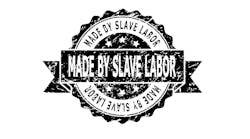Lately I've been having conversations about employee perks on both side of the age-and-experience spectrum. A friend of mine who is in her late 50s is thinking about changing careers and for her, it's the benefits that matter most. Can she work from home? Can she make her own schedule? Can she get reimbursed for continuing education? At the same time a Millennial friend is interviewing for her first job and the company's social responsibility is her first concern.The second is the flexibility of the schedule.
This led me to look around and see what other types of benefits and perks companies are currently offering to their employees.
Before I get to the more traditional perks, here are some very creative ones that companies provide free of charge to their workers:
Car Tune-Ups: Cisco has a car repair service travel to its San Jose, Calif-based campus twice a week.
Dog-Sitting: Genentech keeps these "family" members happy at its San Francisco location.
Scuba Diving Certification: Chesapeake Energy supports the adventurous side of its workforce.
Poker Parties: Zynga, the social gaming company, throws a monthly poker game for the staff complete with professional dealers and prizes.
More traditional companies tend to offer more traditional types of perks, such as:
Mental Health Support: While many companies now offer discounted gym memberships to keep their employees physically fit, mental health is often forgotten. Funds can be provided for talking to psychologists, social workers, or other counselors.
Interest-Free Loans: For those companies with a strong cash flow, this perk, which allows employees to pay the company back over a period of time, demonstrates a strong commitment to every employee.
Donation-Matching Programs: This perk applies both to workers who have favorite charities and the Millennials who have made it very clear they want to work for companies that are socially conscious.
And here are some ideas that have been around but have increased in importance as the needs of the future workforce have evolved:
Professional Development: This is by far the most highly prized benefit that attracts Millennials to employers. This group needs a clearly defined career path that spells out a clear—and quick—succession of opportunities.
Control over Work Schedule: It's sometimes difficult for employers in traditional companies to understand, but Millennials want to be able to not only work from home but work the hours they want. For those work environments where this might be not possible (e.g., distribution centers and manufacturing plants), the company can still provide flexible schedules that are determined by employees' needs rather than company schedules.
Choice in Employee Benefits: The Millennial generation definitely wants to have some say in what perks are available. A popular solution is a cafeteria plan where employers allocate a specific amount of money, and the employees can choose the benefits they want.
What all of these perks have in common is that the companies are showing their current—and future—workforce that they view them as people, with concerns, issues and aspirations. They are not merely a pair of hands; they are multi-faceted human beings who bring a variety of specific concerns with them when they walk through the door. And the fact that companies are trying hard to expand their views of their employees is appreciated and in fact rewarded with loyal workers.
With this new level of understanding, I think it's a great time to be in the workforce.



